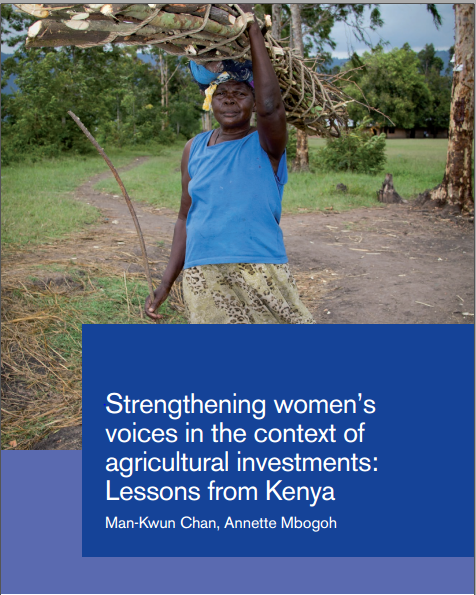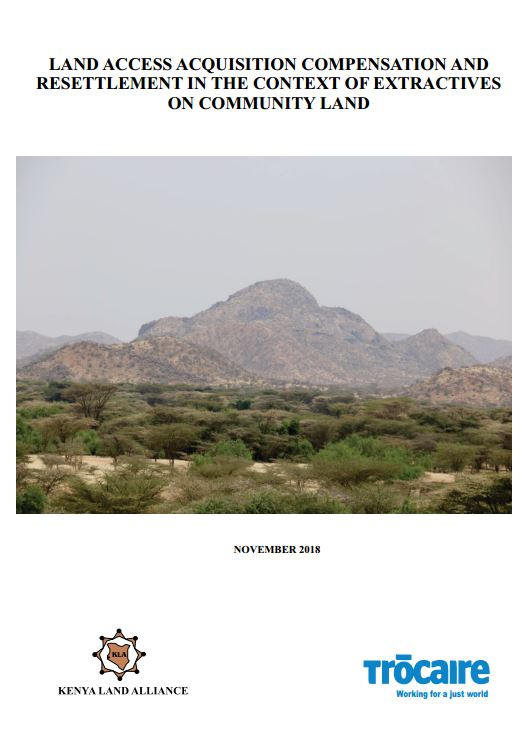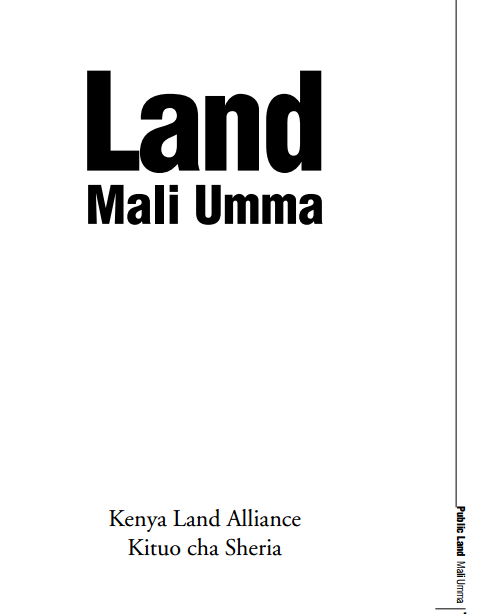Land, Environment and Natural Resources Submission to the Constitution of Kenya Review Commission From Kenya Land Alliance
The Kenya Land Alliance (KLA) is a focal point for information sharing and networking among those pressing for land reform in Kenya. It was formed in 1999 by members of civil society to propose reforms both to the Commission on the Review of Land Laws, appointed by the President, and the Constitution of Kenya Review Commission, appointed by Parliament. Over the last two years, the KLA has coordinated a programme of research on land issues in Kenya by member organisations








